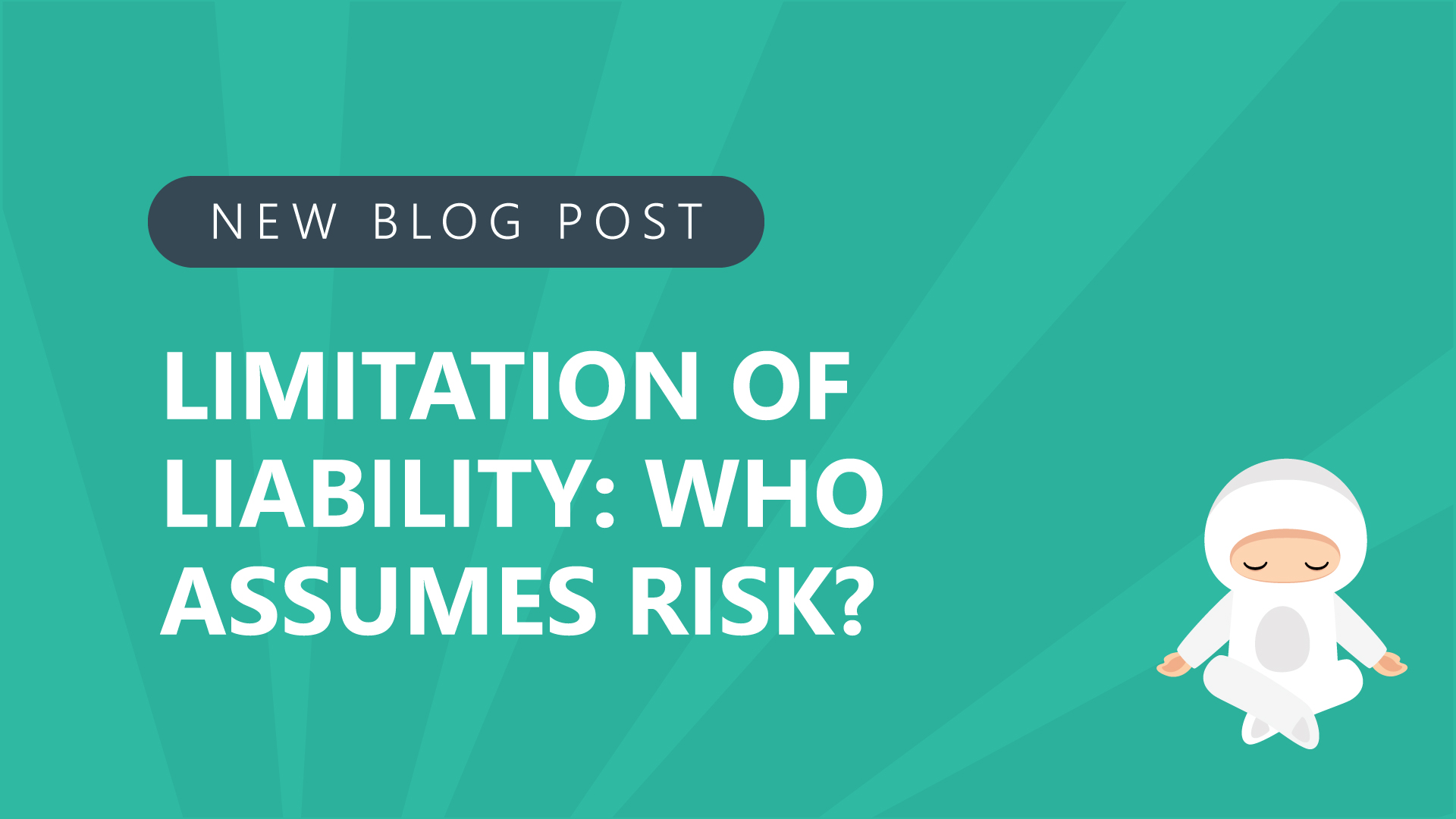Jeanette Nyden—a contract and negotiation expert—works with clients to help them understand and master the contracting process. Part of that process is helping them understand the limitation of liability clause and how to properly draft it. But who owns the risk? Is it sales or procurement? Or is it a third party who should assume most of the risk? Jeanette breaks down the issues in a recent episode of Negotiations Ninja.
How to approach limitation of liability from different lenses
Sales and procurement have lots of differences, right? Many procurement professionals who are new to the industry haven’t had time to understand what risks aren’t standard. So Jeanette works to help companies identify who needs to be the expert in the process. If it’s the sales team, they need to own it. They need to master the language and hit the white line that legal sets. You need to craft the emails and be prepared to have the conversations. Set the stage because you’re the experts.
When procurement needs to run the risk profile, they need to understand what they’re buying and what the risk profile is. They need to have in-depth conversations with stakeholders about how their own organization may contribute to the risk event. So procurement can design a statement of work and terms and conditions to help mitigate it.
Make sure your sales teams understand your risks
It’s easier to convince the sales team to talk about the risks and how they’re handled when they have a clear roadmap to follow. One business Jeanette works with saw their sales cycle dramatically reduced because they became comfortable addressing 80% of the things that come up in their sales conversations.
The reality is that if you think through your risks logically, it becomes easy to talk about them. If you’re being asked general questions about risk, you should have developed answers in your sales process to have an intelligent discussion. These are complex negotiations and services, and you need to know how to have these conversations.
If you own the risk—understand it
Whoever owns the risks must understand what the risks are. The only way to fully understand how you’ll apply limitations around liability is by understanding the work that’s being done, the risk profile, the mitigation strategies around risks, and what controls are in place. Then, make sure you have the operational plan to carry it out. Without these things, it becomes a guessing game. You have to get the risk exposure puzzle mapped out and run it by insurance.
Then you go back to your legal team with the proposed changes to the limitations of liability clause that you’d like to make. You can explain why it is or isn’t valid from a commercial aspect. You can say where you think it should be capped to feel confident. So when and if everything happens, you’ll know how things will play out.
How to identify what the risk is and who owns it
Many companies have a clear understanding of pieces of their risk profile, but it’s a puzzle that they must put together. To fully understand your risks, there are three simple questions you can start to ask:
- With this particular service, who should be in charge of the risk conversation? Should it be your company as the supplier? If you’re in procurement, should you be in charge because it’s specific to your role? Knowing who is in charge of risk gives you a break.
- If you are the one in charge of risk, how have you talked about what the main three risk events could be? What are they? On the customer side, supplier performance is a risk.
- What are you doing to make sure the risk doesn’t happen? Do you have a risk management plan in place?
Someone somewhere in your organization has likely thought through these questions, but they may not have communicated them to you. Use these questions as a launching point to start a conversation. If you can learn to talk about risk management and limitation of liability simply, you’ll be able to handle the discussions with ease.
To learn more about limitation of liability clauses, check out episode #256 of the Negotiations Ninja podcast!

